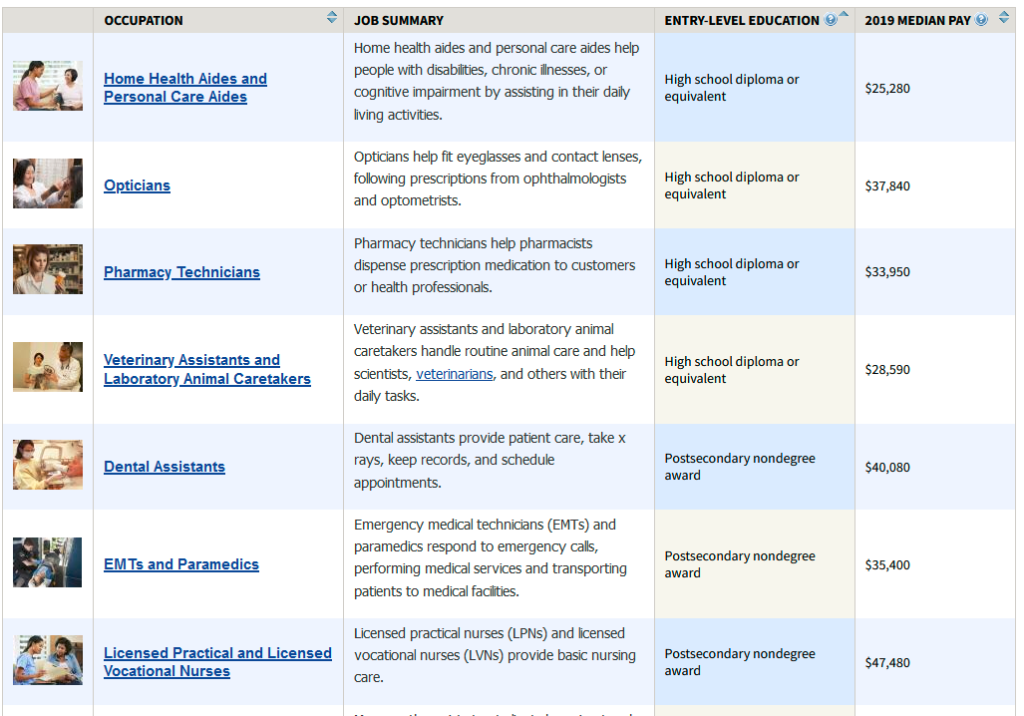7 Reasons It’s Worth Pursuing a Career In Healthcare
Is it worth starting a career in healthcare?
Anyone who has worked in this field knows it’s one of the most challenging industries to enter. It’s fast-paced, competitive, and the job is often inherently tied to intense emotional and physical demands.
Still, numerous healthcare employees can attest to the fact that jobs in healthcare are indeed worth pursuing. In fact, in one study, six out of the 15 most satisfying jobs are in healthcare. Here are some reasons why:
1. Healthcare Offers Great Career Prospects
According to the Bureau of Labor Statistics, employment in the healthcare industry, across its numerous occupations, is expected to grow by 15% between 2019 and 2029. That’s a total of around 2.4 million new jobs. This projected growth can be credited to an aging Baby Boomer population that will require reliable healthcare services and skilled workers to meet their demands. Given this, healthcare jobs are poised to add more jobs than any other industry or occupational group.

2. Excellent Job Stability
Due to the healthcare industry’s phenomenal job growth, you can also expect it to offer great job stability. Given the aging population and their demand for great healthcare, the demand for qualified medical practitioners and professionals will remain steady.
3. High Career Satisfaction
Healthcare workers spend a lot of time trying to make a difference in other people’s lives. The very nature of the work allows you to nurture an inherent desire to help members of your community while also earning a living. There are few professions available today that can say the same thing. Additionally, healthcare workers get to be a part of important moments in patients’ lives (e.g. births, recoveries), adding to the sense of satisfaction they get from their jobs. There’s also the satisfaction of demonstrating your clinical and medical expertise. Whatever role you may play in patient care, it’s evident that the job makes a valuable, positive impact on people’s lives.
4. Diverse Job Opportunities for Varying Educational Levels
Depending on your level of education, there are numerous healthcare career options available for you. For some, their dedication to healthcare is demonstrated in the years they put in towards earning their medical degree as a doctor with specialized skills. Some people might get a bachelor’s degree to become a nurse practitioner, while others who want to fast track their careers in the nursing field work towards getting associate degrees or certificate programs. The point is, healthcare offers numerous options for prospective employees with varying educational backgrounds—whether you have a GED or a PhD, you’re likely to find a career path that suits your skills and training.
5. Competitive Earning Potential
The consistently increasing demand for skilled and highly trained healthcare employees makes careers in this field more lucrative than some other jobs. Of course, the more training you have under your belt in your chosen specialization, the higher your income will likely be. Even so, healthcare professionals enjoy pretty competitive salaries.
According to BLS, the average annual salary for healthcare practitioners and technical occupations in this field such as registered nurses, doctors, physicians, dental hygienists, and surgeons is pegged at $68,190 for 2019. That makes it significantly higher than the average annual wage for all occupations, which was at $39,810 at the time.
6. Dynamic Work Environment
The healthcare industry is a fast-paced field that is very dynamic by nature. In this industry, no day is the same, which makes healthcare more exciting and diverse than pretty much any other profession. In healthcare, you interact with different people daily; and you can also constantly learn new skills through hands-on practice. The quickly evolving nature of medical technology also opens up numerous opportunities for employees to learn new technology and applications.
7. Flexible Work Environment
This is an often surprising facet of healthcare that’s typically overlooked. Considering people will generally need help from medical professionals pretty much round-the-clock, it makes sense why healthcare employees usually work flexible schedules. Some may work overnight shifts and shorter workweeks or pull in more hours with the option to work remotely.
The need for healthcare is universal, opening up more opportunities for those with a career in this field to choose where they want to be located in the world. There will likely be a need for someone with your skills and area of expertise because healthcare is a necessity everywhere.
Bottom Line
Regardless of how healthcare evolves in the next few years, one thing is for sure: the demand for healthcare workers will continue to rise. Employees who are skilled, trained, and educated to deliver high-quality services will grow within this thriving industry, making any career in healthcare well worth pursuing.
If you’re considering a career in healthcare, visit our website to discover more career options.














